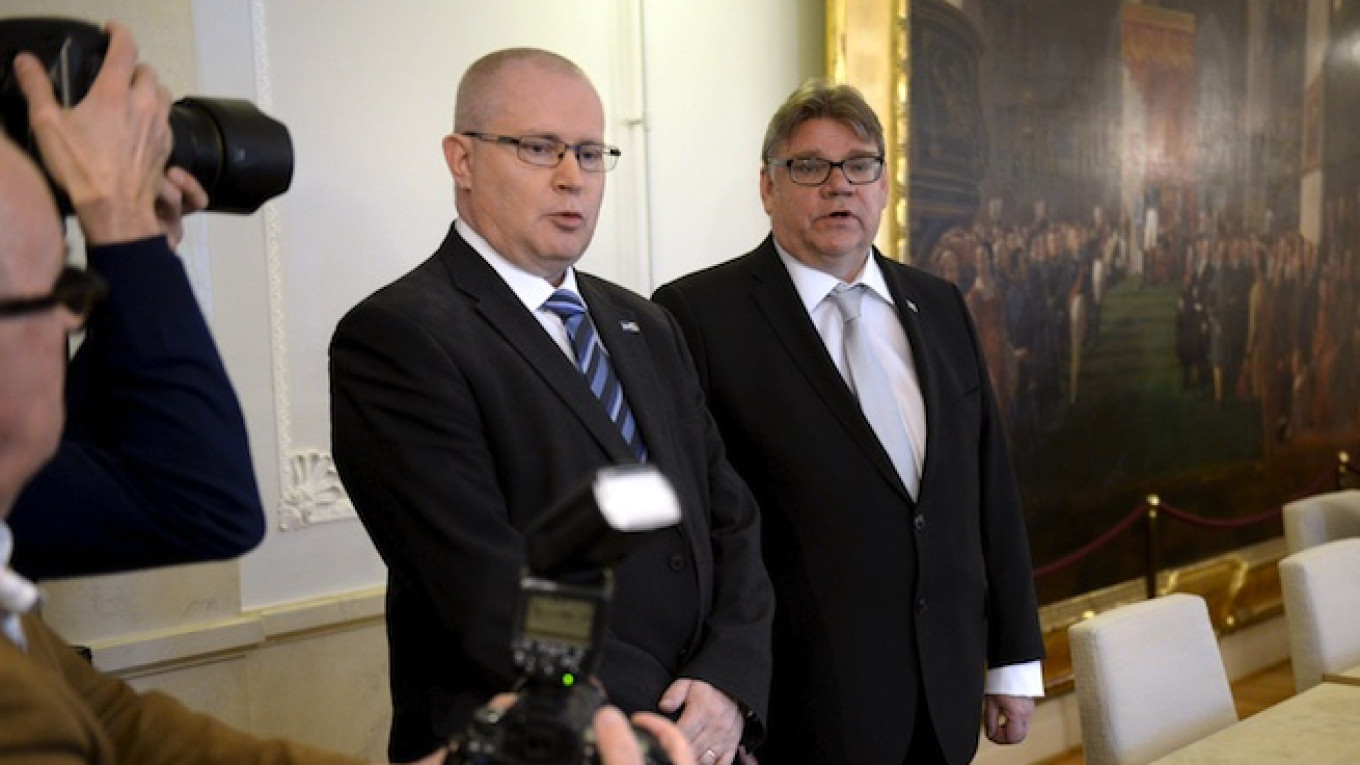Finland's government aims to maintain good relations with neighbouring Russia, but it condemns the annexation of Crimea and will comply with European Union positions on the Ukraine crisis, its new foreign minister said.
Recent Russian air force and naval activity in the Nordic area, combined with a pro-Russian insurgency in eastern Ukraine, have encouraged the new government to assess the pros and cons joining NATO.
However, Timo Soini, the new foreign minister and leader of the euro-sceptic The Finns Party, underlined continuity in foreign and security policy.
"Russia is an important neighbor and trade partner, but if there is reason to criticize, we will do that. We do not accept the annexation of Crimea," he told a press conference after the inauguration ceremony of the new government.
Finland, a militarily neutral EU state, has long walked a fine line with Russia, its former ruler and important trade partner, with which it shares an 1,340 km border.
Last month, the Nordic countries issued a surprise joint statement on cooperating on defense and directly cited the Russian "challenge" as grounds as their reason. Moscow responded by saying it was a "special concern" that Finland and Sweden might move towards closer ties with NATO.
Finland's new center-right coalition said in its government program that "Finland is a militarily non-allied state which is engaged in a practical partnership with NATO and maintains the option to seek NATO membership."
The government plans to prepare a report on security and defense policy that would assess the effects of a possible NATO membership. It also plans to boost the defense spending amid wide cuts in most other sectors.
At the moment, polls show a majority of Finns are against joining NATO, and politicians have said a decision to apply for full membership could require a referendum.
A Message from The Moscow Times:
Dear readers,
We are facing unprecedented challenges. Russia's Prosecutor General's Office has designated The Moscow Times as an "undesirable" organization, criminalizing our work and putting our staff at risk of prosecution. This follows our earlier unjust labeling as a "foreign agent."
These actions are direct attempts to silence independent journalism in Russia. The authorities claim our work "discredits the decisions of the Russian leadership." We see things differently: we strive to provide accurate, unbiased reporting on Russia.
We, the journalists of The Moscow Times, refuse to be silenced. But to continue our work, we need your help.
Your support, no matter how small, makes a world of difference. If you can, please support us monthly starting from just $2. It's quick to set up, and every contribution makes a significant impact.
By supporting The Moscow Times, you're defending open, independent journalism in the face of repression. Thank you for standing with us.
Remind me later.


